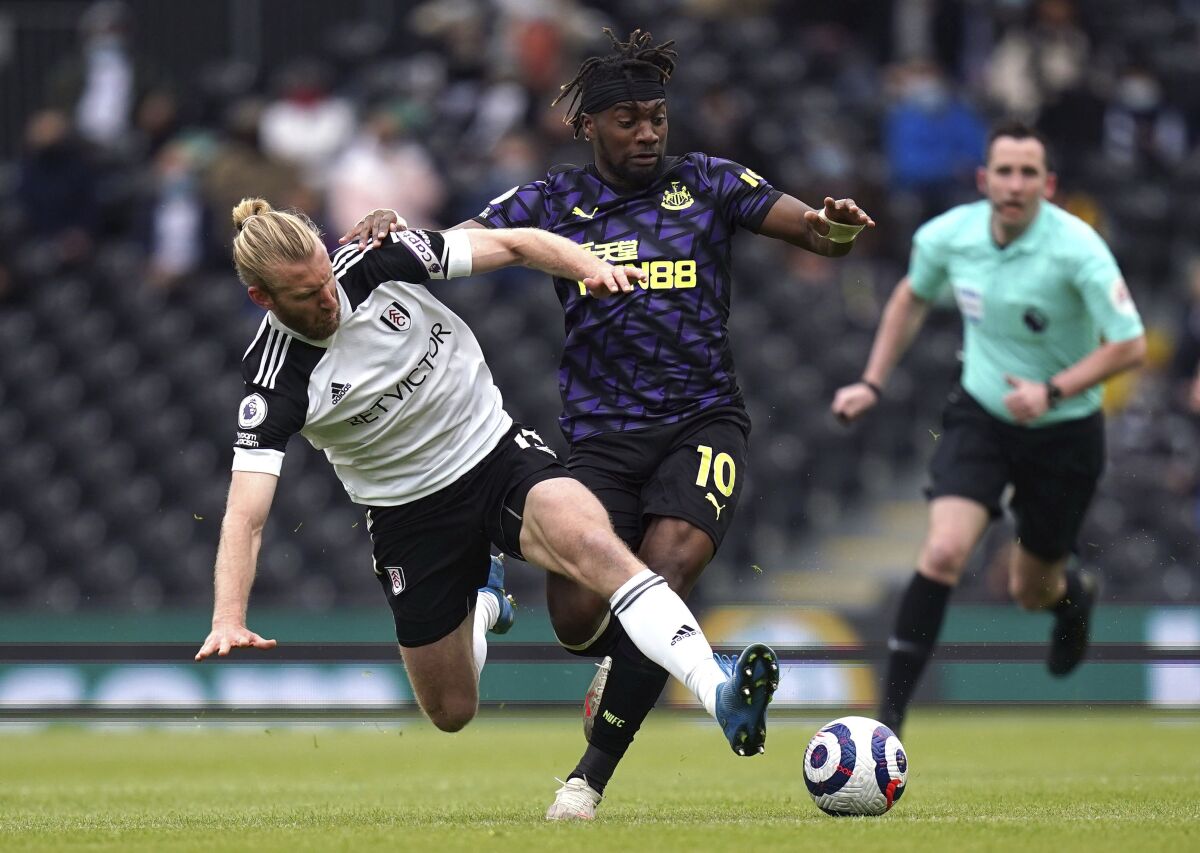Tim Ream is ready to be an important part of the USMNT at the World Cup.

DOHA, Qatar —
Tim Ream thought he was going to the World Cup four years ago, only to see the U.S. fall one point shy after a fluke loss to Trinidad and Tobago in the final qualifier.
He thought he had a shot this year, only to fall off the national team’s depth chart, going 14 months without call-up. So when coach Gregg Berhalter reached out earlier this month and invited him to Qatar, it wasn’t as much a surprise as it was a relief.
Berhalter is expected on Monday to reach out again and complete that dream by giving Ream a place in the starting line at center back in the Americans’ tournament opener against Wales.
“You don’t ever give up hope. You never completely say you’re out of the picture,” said Ream, who was pretty much out of the picture until injuries to center backs Miles Robinson and Chris Richards muddled the focus.
“I didn’t expect to be here, involved in a World Cup,” he continued. “It’s something that we all dream of as a kid.”
⚽ 2022 Qatar World Cup
It’s been a long time since Ream was a kid. At 35 he’s the oldest player on a team that averages 25 years of age, making it the second-youngest in Qatar. That’s led to a lot of light-hearted kidding.
“Tim’s the grandpa of the group,” midfielder Tyler Adams said.
Behind the joking is a deep respect for what Ream brings because for all its youth and talent, one thing the U.S. lacked was experience.
“He’s a crucial part of our team,” said Adams, who was in grade school when Ream made his international debut. “At times, we probably missed him and his leadership, his quality — just someone of that experience and caliber around the group.”
If injuries opened the door to the World Cup for Ream, his recent play allowed him to walk through that door. He hasn’t missed a league game for Fulham in the past two seasons, helping the team climb back into the Premier League. Perhaps just as important he plays in England alongside left back Antonee Robinson, who has become a standout performer for the national team. Pairing them in the World Cup makes a lot of sense.
“A lot of people thought he was down and out,” said defender DeAndre Yedlin, the only member of the U.S. team who has been on a World Cup roster. “And now at 35 he’s playing in his first World Cup. Things like that makes this group so special. Guys on this team never give up, and that’s a big part of our DNA.”

Tim Ream, left, battles Allan Saint-Maximin for the ball during English Premier League match between Fulham Newcastle United in May 2021.
(Matthew Childs / Associated Press)
After finally getting to the World Cup, Ream and his teammates will have to wait a bit to actually get on the field since the three U.S. group-stage games won’t kick off until 10 p.m. local time.
“It’s a big adjustment,” Adams said of the late start.
Four years ago in Russia, where the World Cup was played in 31 days across a continent-sized country, group play kicked off over a six-hour window, with no games starting later than 9 p.m. local time. Moving the tournament from the summer to the fall has compacted the schedule so there will be four games daily in the first round. And with no two stadiums more than 35 miles apart, organizers have widened the kickoff window, scheduling games to start between 1 and 10 p.m. local time, to squeeze in the extra match and also to avoid congestion in and around the stadiums.
“We are preparing a little bit differently,” Ream said. “We just kind of moved back meals and trainings. We’re taking care to make sure that we are optimally prepared to play at that time of night.
“This is just one of those things that we have to deal with and adjust our body clocks.”
TV broadcasters deserve some of the blame for the late starts. The eight-hour time difference between New York and Doha means the first three U.S. games will start at 2 p.m. on the East Coast, 11 a.m. in Los Angeles. That’s not ideal but it’s better than the alternative — more than half a dozen first-round matches not involving the U.S. will start at 2 a.m. on the West Coast.
Early start times in Russia contributed to a 35% drop in English-viewership from 2014-18. Telemundo’s drop was even steeper at 41%, although the absence of the U.S. from the tournament was responsible for a big chunk of that decline.
So this year, with the U.S. back in the competition, Fox Sports asked FIFA to give the Americans the latest possible start times and was rewarded with three 10 p.m. kickoffs in the group stage.
“We really felt it would benefit our viewers if we had a good time,” said David J. Neal, vice president of production for Fox Sports and executive producer of the network’s World Cup coverage. “So we’re trying to get maximum exposure for the U.S. team. Under the circumstances it’s the best scenario.”
Well, maybe not for the players. The late starts will affect the team between games because with matches ending around midnight it’s unlikely it will be back to its hotel before 2 a.m., where sleep could be difficult.
“I don’t really sleep after night games,” Ream said.
In this case it might be because Ream is afraid he’ll wake up and find his whole improbable World Cup adventure has been a dream.




